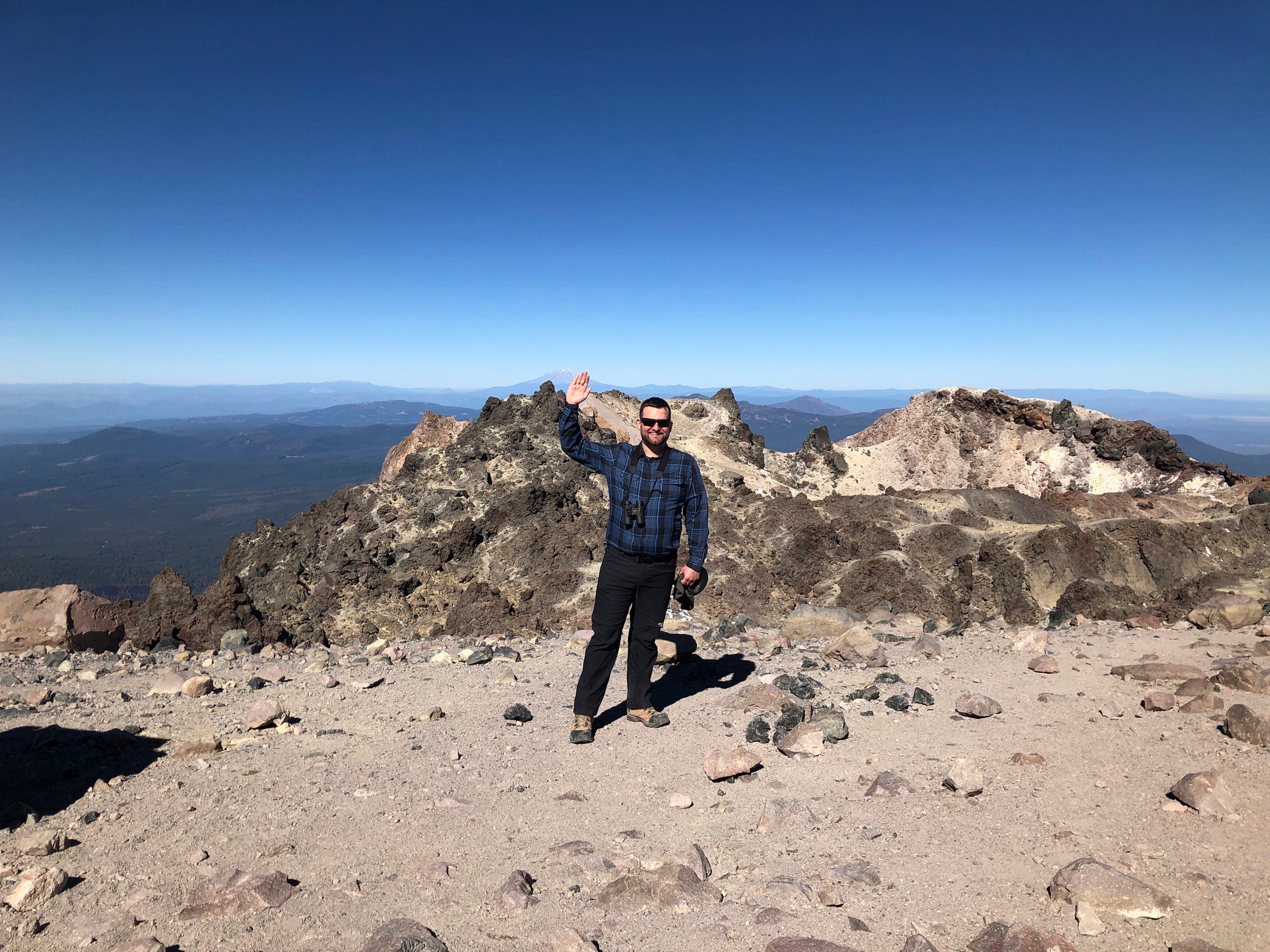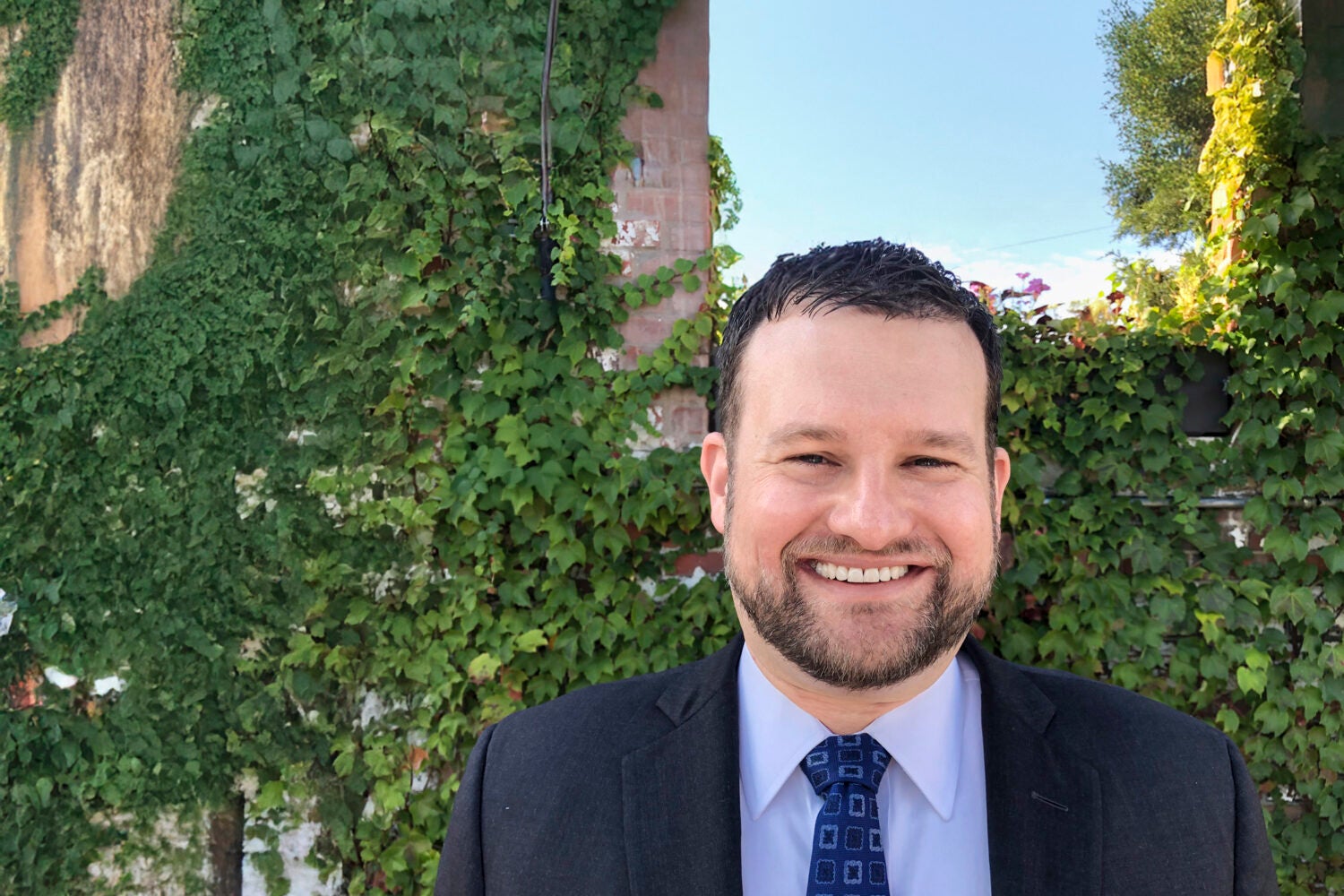J.B. Tarter ’09 knows that apps on his cellphone could be listening to what he says at any time. He keeps the camera lens on his computer covered. If he wants to communicate anything he wouldn’t want printed in a newspaper, he conveys it verbally, not in writing. He won’t even use a baby monitor connected to Wi-Fi.
“I don’t trust technology security,” he says. “It works most of the time, but I do not trust it. So if there’s something I don’t want on the technologies, I don’t put it on there.”
His caution is well earned. For several years, he has worked in cybersecurity, first when the U.S. Department of Energy launched the Office of Cybersecurity, Energy Security, and Emergency Response. As attorney-adviser, he worked with myriad companies responsible for the sprawling energy infrastructure across the United States to prevent cyberattacks on the energy grid. Currently he serves as senior special counsel in the Cybersecurity Program Office at the U.S. Securities and Exchange Commission, focusing on protecting the securities market to ensure that exchanges like NASDAQ are functioning properly. In that role, he works with federal partners, the intelligence community, the private sector, and international entities to prepare for and respond to possible cyberattacks.
Tarter pursued law for the variety of opportunities it provides.
His biggest career challenge did not involve cyberthreats, however. During his time at the Department of Energy, he returned to his home state to serve as acting chief counsel of the department’s Idaho Operations Office, which supports the nation’s largest nuclear facility and employs more than 5,000 people over 890 square miles. He gained management and leadership experience and faced issues he would never face in Washington, like establishing the number of taxidermy animals people could display in their offices. But he also got more than he bargained for when the COVID-19 pandemic hit near the start of his tenure, leaving him to manage issues ranging from travel to security to medical supplies. “Trying to figure out how do we continue our overall mission during the middle of the pandemic was really hard — everything from employee safety to on-the-ground work — because our work couldn’t be done remotely,” he says.
Tarter began his career in a law firm in Houston under the tutelage of Ted Cruz ’95, whom he had met through his involvement with the Federalist Society at Harvard Law School. He gained the rare opportunity as a new associate to appear before the Supreme Court when Cruz asked him to be second chair on a patent case, which they won. Although he appreciated his experience at the firm, when Cruz left to become a U.S. senator, Tarter decided that public service would provide more rewards for him than the private sector.
“If I did my job well, I saved the company lots of money or made lots of money. That’s what you do at a law firm. Nothing wrong with that,” he says. “Here, if you do your job well, more Americans live and are safer. It’s a good sense of purpose and mission.”
He credits Professor Jack Goldsmith, one of his mentors when he was a student at Harvard Law School, with inspiring him to pursue his first experience in public service during law school as a legal intern for the Defense Intelligence Agency, where he would later work as an associate general counsel. Tarter calls his time at Harvard “an amazing experience.” He found a community of people in the Federalist Society who shared his conservative politics, but he also formed friendships with and learned from many people with whom he disagreed.

“I had a great time, met some great people, and was challenged and pushed, and had this great ability to try new things to figure out what I wanted to do,” he says.
Tarter was one of the youngest students in his class at Harvard Law, having earned an associate degree when he was 16 and gone to law school right after graduating from Emory University with a master’s degree. His mother, a doctor, and father, a chemistry professor, imbued in him a zeal for education. He decided he wanted to pursue a legal career for the variety of opportunities it brings.
“You can work in any subject matter, and it affects everything,” says Tarter. “Everybody needs the law, for better or for worse, and it’s a tool that gives me access. I’m not a securities guy. So, I would not have gone to SEC otherwise, but because I had these legal skills, I can contribute in this area.”
Married to a fellow attorney, Javaneh Tarter, and with two young sons, he keeps busy with his home and work life. But he can occasionally get away for hiking trips and has visited dozens of national parks over the years. He especially enjoys hiking in the mountains, about as far away from technology as you can get nowadays.
